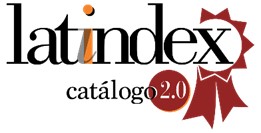Inferences and conditional model in the students’ dialogue about mathematical tasks
DOI:
https://doi.org/10.48489/quadrante.30040Keywords:
mathematical-logical thinking, deductive method , college mathematics, mental model of the conditional , case studiesAbstract
In this paper we explore, with a case study, how mental models of conditional reasoning (Modus Ponens, Modus Tollens and their associated fallacies) are built through the meanings that students give to objects and mathematical relationships of the premises. These inferences are presented in mathematical tasks posed in graphic and colloquial registers. The protocol of an in-depth interview carried out with students entering the university who elaborate additional considerations of their productions is analyzed. We considered the Theory of Mental Models (TMM) for the analysis from a semantic perspective of both the information of the premises and the reasoning scheme. The results of this work make it possible to think about teaching conditions for deductive reasoning in mathematics classes, incorporating contributions from the MMT to the didactic.
References
Attridge, N., & Inglis, M. (2013). Advanced mathematical study and the development of conditional reasoning skills. PLoS ONE, 8(7), e69399. https://doi.org/10.1371/journal.pone.0069399
Bronkhorst, H., Roorda, G., Suhre, C., & Goedhart, M. (2021). Student development in logical reasoning: Results of an intervention guiding students through different modes of visual and formal representation. Canadian Journal of Science, Mathematics and Technology Education, 21(2), 378–399. https://doi.org/10.1007/s42330-021-00148-4
Carnelli, G., Cesaratto, E., Falsetti, M., Formica, A., & Marino, T. (2018). Matemática en contexto. Textos básicos Nro. 19. Ediciones UNGS.
Carreira, S., Amado, N., & Jacinto, H. (2020). Venues for analytical reasoning problems: How children produce deductive reasoning. Education Sciences, 10(6), Article 169. https://doi.org/10.3390/educsci10060169
Duval, R. (1993). Registres de représentation sémiotique et fonctionnement cognitif de la pensée. Annales de didactique et de sciences cognitives, 5(1), 37–65.
García Madruga, J., Gutiérrez, F., Carriedo, N., Moreno, S., & Johnson-Laird, P. (2002). Mental Models in Deductive Reasoning. The Spanish Journal of Psychology, 5(2), 125–140. https://doi.org/10.1017/S1138741600005904
Ginsburg, H. (1981). The clinical interview in psychological research on mathematical thinking: Aims, rationales, techniques. For the learning of mathematics, 1(3), 4–11. http://www.jstor.org/stable/40247721
Inglis, M., & Simpson, A. (2009). Conditional inference and advanced mathematical study: Further evidence. Educational Studies in Mathematics, 72(2), 185–198. https://doi.org/10.1007/s10649-009-9187-z
Johnson-Laird, P. N. (1995). Inference and mental models. In S. E. Newstead & J. S. B. T. Evans (Eds.), Perspectives on thinking and reasoning: Essays in honour of Peter Wason (pp. 115–146). Lawrence Erlbaum Associates.
Johnson-Laird, P. N. (2006). How we reason. Oxford University Press.
Johnson-Laird, P. N. (2013). Mental models and cognitive change. Journal of Cognitive Psychology, 25(2), 131–138. http://doi.org/10.1080/20445911.2012.759935
Johnson-Laird, P. N., & Byrne, R. M. J. (1991). Deduction. Lawrence Erlbaum Associates.
Johnson-Laird, P. N., & Byrne, R. (2002). Conditionals: a theory of meaning, pragmatics, and inference. Psychological Review, 19(4), 646–678. http://doi.org/10.1037//0033-295X.109.4.646
Johnson-Laird, P., Byrne, R., & Shaeken, W. (1992). Propositional reasoning by model. Psychological Review, 99(3), 418–439. https://doi.org/10.1037/0033-295X.99.3.418
Maróstica, A. H. (1969). Elementos Lógicos de la Educación Matemática. Tarea, 2, 97–106.
Niss, M. (2013). Competencies in mathematics education – potentials and challenges. What’s the point? What’s new? What do we gain? What are the pitfalls?. Cuadernos, 11, 85-94.
O’Brien, T. (1973). Logical thinking in college students. Educational Studies in Mathematics, 5, 71–79. https://doi.org/10.1007/BF00684689
Panizza, M. (2005). Razonar y Conocer: Aportes a la comprensión de la racionalidad matemática de los alumnos (Vol. 4). Libros del Zorzal. Bs. As. Argentina.
Shaw, E. (1999). A guide to the qualitative research process: evidence from a small firm study. Qualitative Market Research: An International Journal, 2(2), 59–70. https://doi.org/10.1108/13522759910269973
Stylianides, A. J., & Stylianides, G. J. (2007). The mental models theory of deductive reasoning: Implications for proof instruction. In D. Pitta-Pantazi, & G. Philippou (Eds.), Proceedings of the 5th Congress of European Research in Mathematics Education (pp. 665–674). ERME.
Stylianides, A., Stylianides, G., & Philipous, G. (2004). Undergraduate students’ understanding of the contraposition equivalence rule in symbolic and verbal contexts. Educational Studies in Mathematics, 55, 133–162. http://doi.org/10.1023/B:EDUC.0000017671.47700.0b
Vargas, F., & Stenning, K. (2020). Logical Reasoning beyond Classical Logic: An Illustration with Pythagoras Theorem. International Electronic Journal of Mathematics Education, 15(1). Article em0547. https://doi.org/10.29333/iejme/5883
Zazkis, R., & Hazzan, O. (1998). Interviewing in mathematics education research: Choosing the questions. The Journal of Mathematical Behavior, 17(4), 429–439. https://doi.org/10.1016/S0732-3123(99)00006-1










